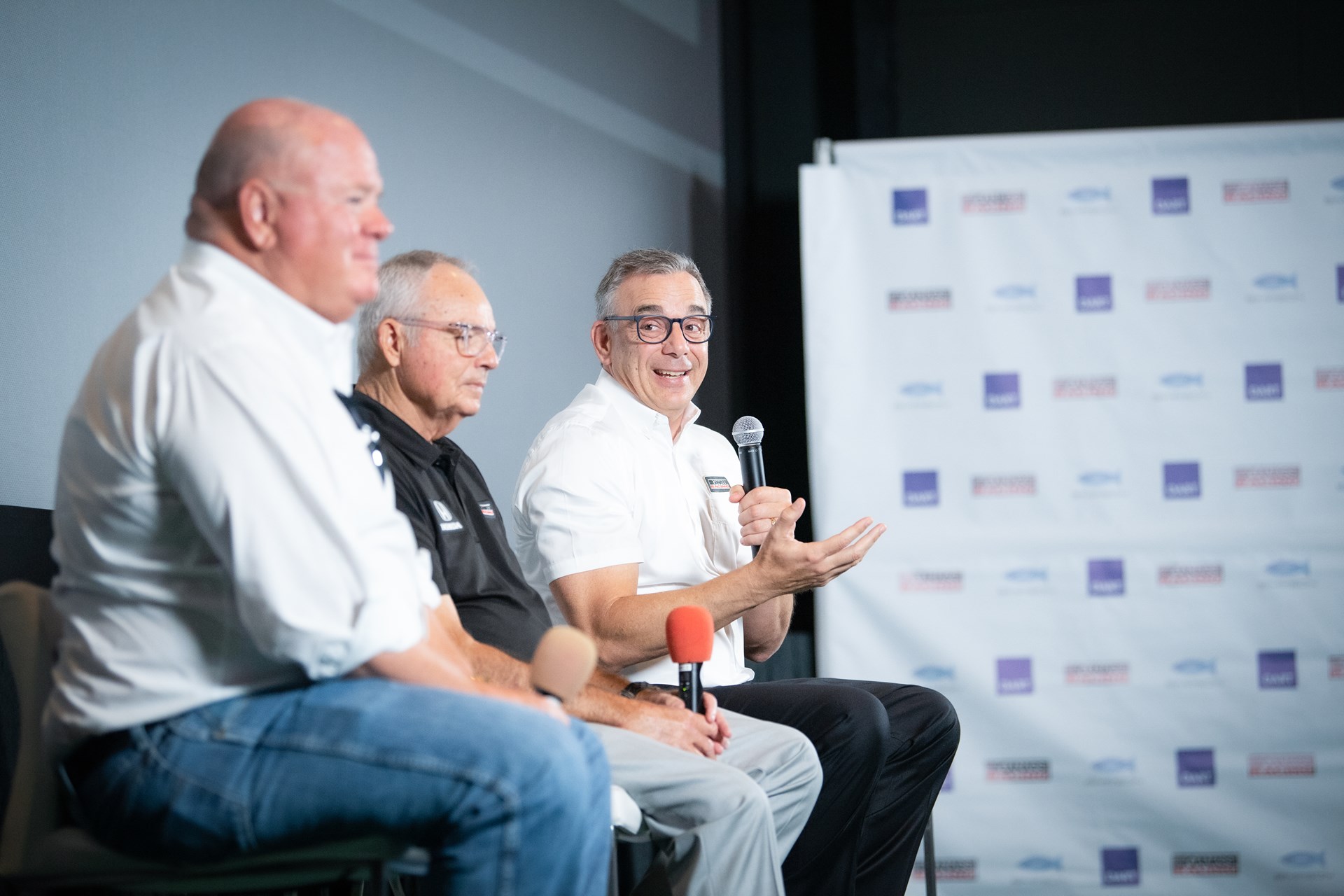
Performance, innovation, integrity and partnership.
These are the fundamental values for any successful business and IndyCar racing is no different.
“We preach these [words] to everyone in the company – even for new employees – those four words mean a lot to us. We are about passion and winning,” said Chip Ganassi, former racing driver and owner of U.S.-based Chip Ganassi Racing (CGR).
Ganassi has been in the auto racing industry for more than 30 years and is one of the most successful and innovative owners in motorsports. CGR is an American auto racing organisation that has drivers competing in major races across various levels of professional racing. On 2 Dec., Dart tenants gathered at Camana Bay Cinema to attend a talk led by members of CGR. The talk covered how to run a successful business and what it takes to ensure you are winning in your industry.
Since 1990, CGR has won 21 championships, including titles at six of the seven most iconic races in auto racing, like the Indianapolis 500, Daytona 500, Brickyard, 24 Hours of Le Mans, Rolex 24 At Daytona and the 12 Hours of Sebring.
“At the very fundamental level of any business, people have to know why you’re there and what you’re doing. That’s what separates us from other teams,” said Ganassi, flanked by CGR Managing Director Mike Hull and the team’s senior advisor, Doug Duchardt.
“Do you win every day? Do you think about winning? Do you win in your personal life or in your business life?" Hull encouraged attendees to ask themselves.
He said winning brings two things: increased passion about the next steps and the trust and ability to teach others.
“Mentoring means you have to redefine priorities every day and you have to be unselfish,” he said.
The people
When piecing together the CGR team, Hull and Duchardt were given instructions to find winners. Rather than poaching from other teams, Hull said they hired winners from other forms of racing and then taught them the intricacies of IndyCar.
“Don’t make business complicated. Think about priority, great partners and great people who can work together,” said Hull.
When interviewing potential employees, Ganassi approaches it from a different angle. “I look for what is in people’s heart – I ask them about everything but racing. I want to know that they have a team mindset," he said. “We encourage free thinking and free communication. We want to hear from all areas of the business."
From their biggest sponsors to their smallest, CGR manages all relationships with the same level of commitment, Hull said, adding, "If they’re successful, then we’re successful.”
Defining moment
In IndyCar, there are four competing teams within CGR. To develop a culture for four teams to work together and still be successful, Ganassi said it’s key to be open with each other.
He recalled a story that served as the glue for his team. In 1997, Honda offered one of his teams a special development engine. When Ganassi asked if all his teams could have the same engine, Honda declined. So, he decided to tell Honda to give the engine to someone else. He didn’t believe in splitting up his teams and putting one at an advantage over the other. He said this could happen in any business, and you must think it through and decide for the wider team.
“It’s important to keep your team galvanised and keep them as one team – with one goal. That’s how I manage my team," he said. Although he declined the engine, CGR drivers won the championship both that year and the following.
“It’s not about sacrifice. It’s about the choice you have to make for your people in order to be successful," Ganassi said.
This article was originally published in the February 2023 edition of Camana Bay Times.